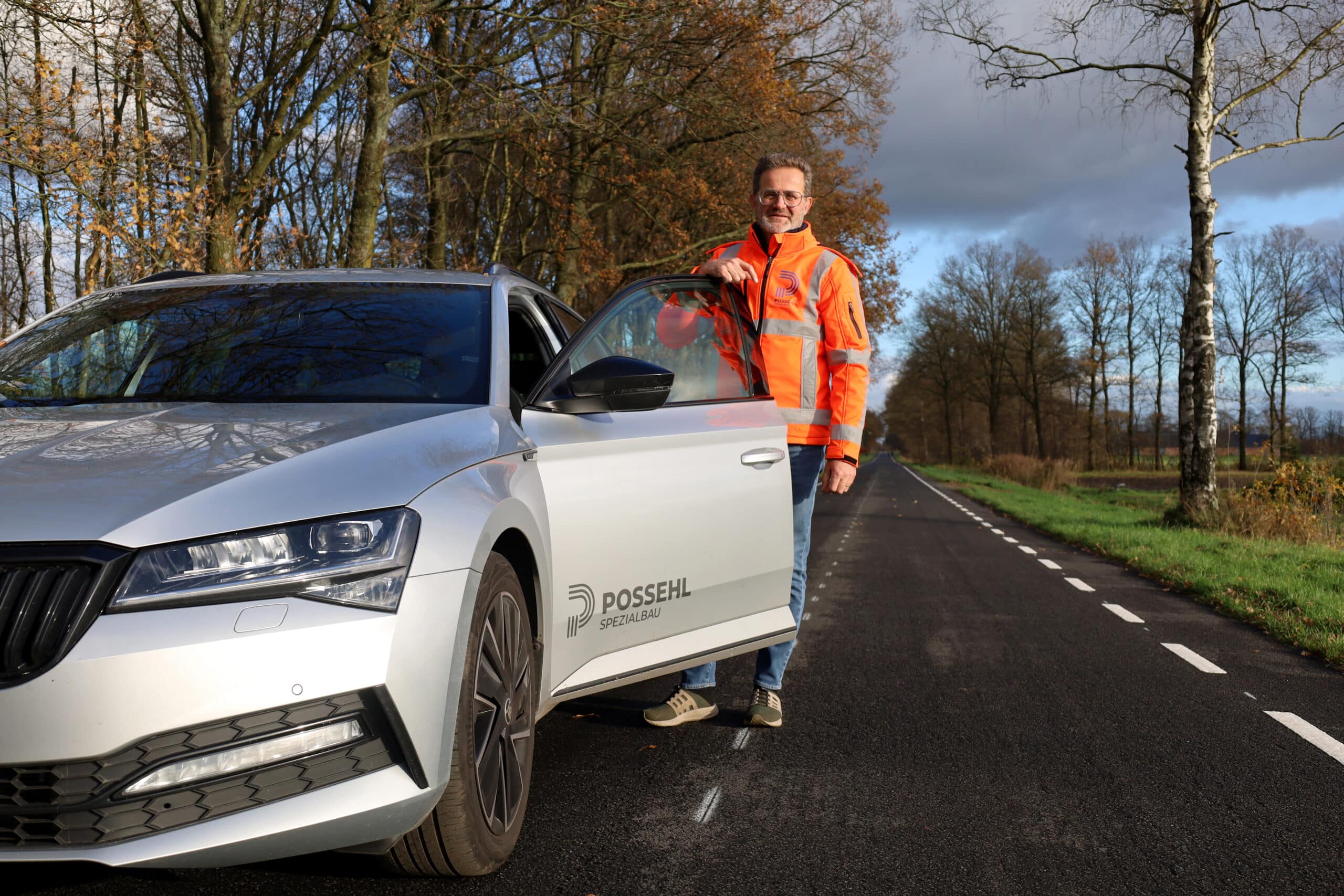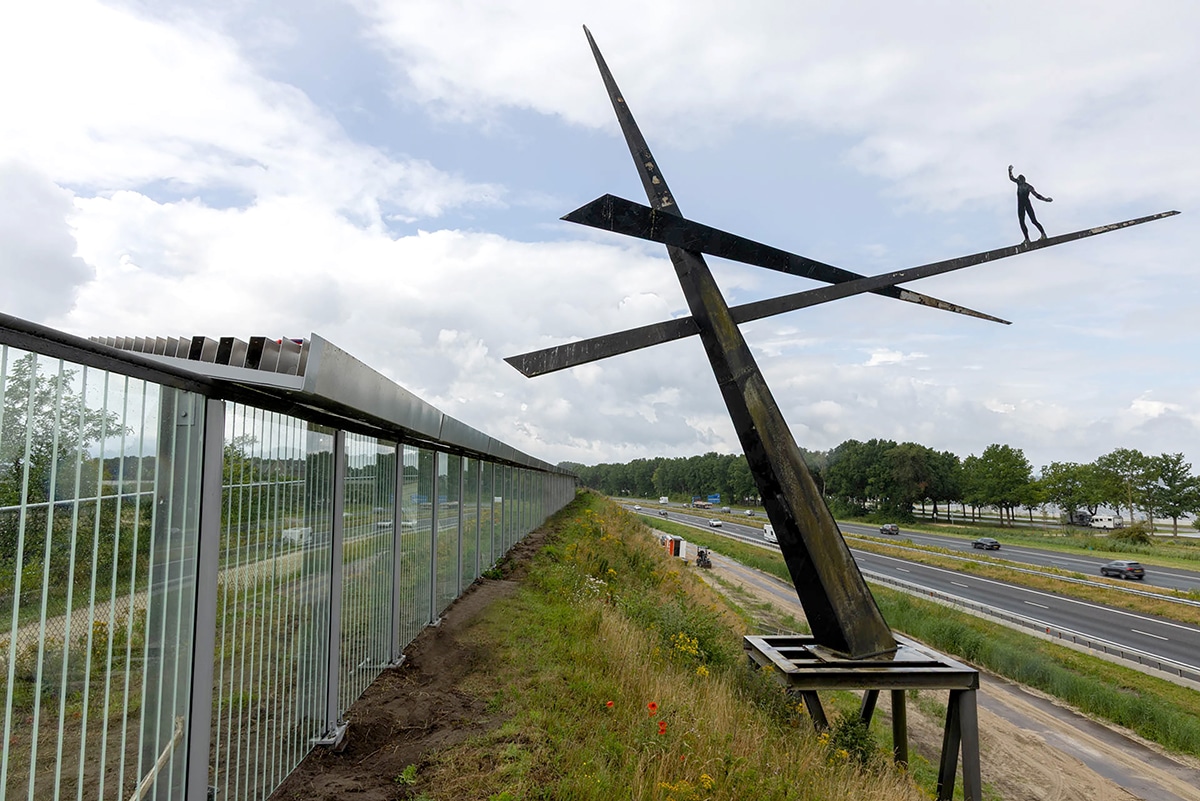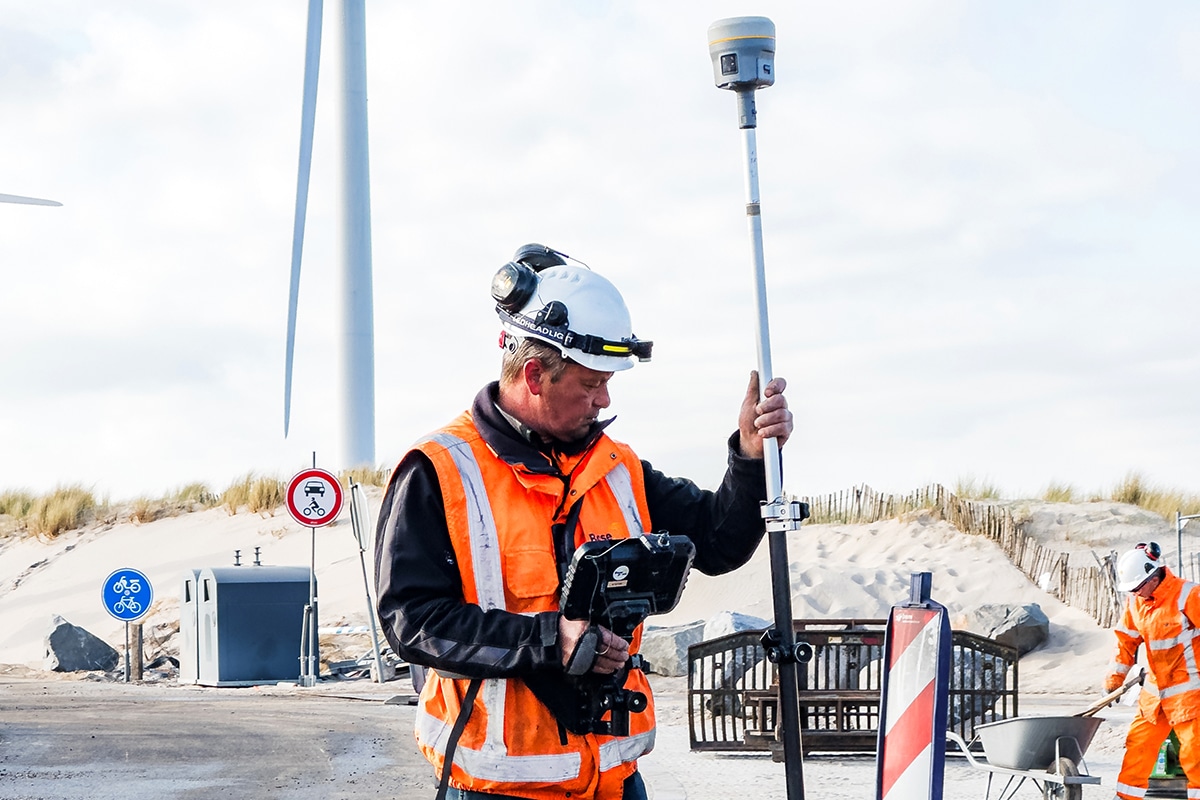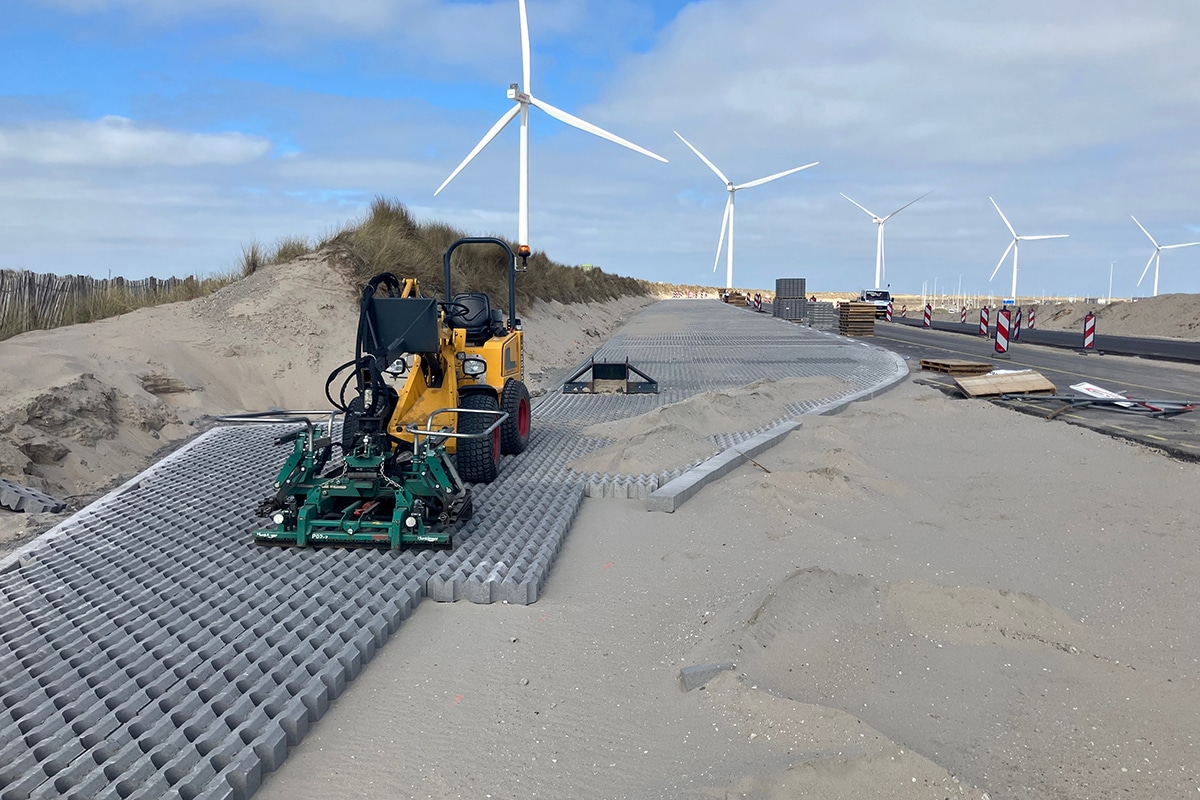
Sustainability in practice: the numbers
The route to emission-free, circular and nature-inclusive construction
In a world where sustainability is becoming increasingly important, KWS in the GWW sector is leading the way with innovative and environmentally conscious initiatives. The construction company has set itself the goal of being a pioneer in the field of sustainable construction, with ambitious targets for the coming years. Their ambition is to realize their projects in phases by 2030 in a way that is virtually emission-free, circular and nature-inclusive.

Casper Tuinstra, company manager KWS: "We specialize in remediation, drainage, sewerage, hydraulic engineering and foundations. Among other things, we do a lot of projects for the national government (Rijkswaterstaat and ProRail), provinces, municipalities and water boards. In addition, we also have private clients. The company, which is part of VolkerWessels, has several offices in the Netherlands and operates according to a decentralized structure in order to be as close as possible to the client and to remain regionally rooted. We find that speaking our 'own language' can make a very big difference in efficiency and effectiveness. No matter how big our projects sometimes are."

Working together for a greener future
Collaboration and partnership are central to their efforts to innovate and become more sustainable. KWS works closely with clients, regulators, the supply chain, knowledge institutions and other partners to promote sustainability innovations. These partnerships enable KWS to continuously work on their common task and transition to sustainable and circular construction methods.
Joost Bos, Manager Sustainability and Innovation KWS: "KWS' strategy comprises three main themes: emission-free construction and production, circular construction, as well as climate adaptation and nature-inclusive construction. To achieve our ambitions, we focus on reducing CO2- and nitrogen emissions, which is achieved, among other things, by purchasing green electricity, reusing materials and electrifying our equipment. KWS has already made significant progress with emission-free construction sites and electric asphalt machines, among other things, which allow projects to reduce CO2-neutral or even CO2-negative be delivered."

Three-part sustainability strategy
Thomas Neef, communications KWS: "We have captured our ambitions for the three pillars - emissions, circular and nature-inclusive - in some unambiguous figures. This year we provided 10% of the projects with a materials passport, made circularity measurable, developed a circularity scan and nature-inclusive building blocks. We will work hard on these in the coming years."
"By 2025, KWS aims to have 100% electric lease cars, 25% electric company cars, 37% of the equipment running on HVO, 25% electric equipment and the establishment of a hydrogen asphalt plant. In terms of circularity, we are targeting 80% of projects with a materials passport, 95% waste separation, 50% of works with a circularity scan and 50% secondary raw materials. Furthermore, by then 20% of our projects will use nature-inclusive building blocks."
"Finally, by 2030 50% of our company cars will be electrically powered, we will use 100% of electric equipment. Moreover, 100% of the projects will be done with a circularity scan, we will work with secondary raw materials for 80% and 60% of the projects will be done with nature-inclusive building blocks. We know these are ambitious figures, but make a strong case that we will achieve this AND more!"

Innovation in Groningen: GemGroReflection
In a remarkable project in Groningen, KWS, in cooperation with the municipality of Groningen, has developed the innovative asphalt mixture GemGroReflection. This mixture is distinguished by its lighter color, which contributes to lower surface temperatures and thus less heat stress in urban areas. GemGroReflection is produced more sustainably, resulting in a reduction of 2% in CO2-emissions and reduced gas consumption. In addition, the mixture improves social safety through improved visibility and reflectivity of street lights. This innovation is an example of how KWS is contributing to more sustainable and safer urban environments.

Heeft u vragen over dit artikel, project of product?
Neem dan rechtstreeks contact op met KWS.
 Contact opnemen
Contact opnemen




